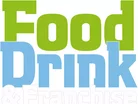Starbucks to use blockchain to make coffee transparent from 'bean to cup'

In an effort to increase transparency from “bean to cup”, Starbucks has become the latest food and beverage company to use blockchain technology.
The Seattle-based coffee giant said it is going to launch a pilot program to trace coffee beans from Costa Rica, Columbia and Rwanda using “traceability technology.”
The new pilot program is part of the firm’s wider commitment to commit to sustainable and ethically sourced coffee beans.
The technology will log and share real-time information about the journey of the coffee beans and aims to positively impact smallholder farmers within its supply chain.
“Over the next two years, we will look to demonstrate how technology and innovative data platforms can give coffee farmers even more financial empowerment,” said the company’s CEO Kevin Johnson.
SEE ALSO:
- Starbucks invests $10mn to develop recyclable, compostable coffee cup
- Starbucks, PepsiCo and Mars Inc among world's most ethical companies in 2018
- Starbucks trials 5p cup charge in a bid to tackle plastic waste
“Traceability technology could have profound implications for connecting coffee drinkers to the farmers who grow it,” added Arthur Karuletwa, director of traceability at the company.
“This could be a seismic change in an industry that hasn’t had much innovation in the way coffee moves across borders and oceans,” he said.
“At the same time, I’ve met farmers who have very little by way of possessions, but they have a mobile phone. Digital has become the economic engine of this century, and traceability preserves the most valuable assets we have as human beings – our identity.”
Transparency has become a fast-emerging trend in the food and beverage sector, with a recent survey by the Hartman Group revealing that 69% of consumers say they want retailers to be more transparent about their sustainability efforts.
As a result, many industry leaders have increasingly tapped into blockchain technologies to enhance their sustainability efforts and make their supply chains more visible.
For instance, US retailer Walmart recently partnered with tech giant IM and Tsinghua University in Beijing to investigate the use of distributed ledge technology to enhance the efficiency and transparency of its supply chain.
Meanwhile, last year, agricultural conglomerate Cargill Inc.leveraged blockchain technology to allow consumers to trace their Thanksgiving turkey from the store where they bought it to the farm that raised it.



